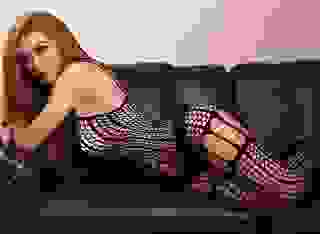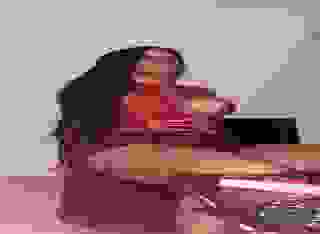Note: You can change font size, font face, and turn on dark mode by clicking the "A" icon tab in the Story Info Box.
You can temporarily switch back to a Classic Literotica® experience during our ongoing public Beta testing. Please consider leaving feedback on issues you experience or suggest improvements.
Click here"You're wrong. Things will change. No one else inspires people like Churchill. No one else as the same grip on things that he has, and no one else has the same insane determination to keep on punching each time he's knocked over. Lesser but more reasonable men will seek an honourable end to all the butchery."
Slowly Jimmy kept moving forward. "You picked a good pistol. It doesn't need to be cocked for every shot. It as a double-action mechanism and can be fired faster than a Colt."
He took a final step and pressed his chest against the muzzle of the gun, but his hands remained down by his side, making no attempt to snatch at the weapon. "You're going to have to kill me before you can carry out your plan, Willie. I've been walking in the shadow of death ever since Toby saved my life last year, so maybe you are the one to do the deed. It will be a good test. If you can't kill a volunteer like me you won't be able to kill Churchill."
Willie sighed, letting his breath out as his narrow shoulders sagged forward. Tears at last spilled from his eyes. "I don't wish to kill anyone. I just wished for all the slaughter to stop, but everything has gone wrong."
The pistol drooped in his grip and Jimmy gently lifted it out from his hands and held it at arms length until Toby came up to take it from him and make it safe. Then he leaned forward and pulled Willie close, conscious only that Dutch girl was thin and seemed to be all arms and legs at that moment. Her elfin frame, wracked with sobs felt unbelievably delicate in his arms.
For a moment he refused to release her, knowing that in her near hysterical state she wasn't thinking straight and could hurt herself. "You've got yourself into a mess, Willie."
"Yes."
"People can be vicious in wartime; you could get into nasty trouble for just thinking the way you do. Toby and I can forget about this nonsense business with the gun and you won't be turned in as a spy, but we shall have to declare you to be an unregistered alien. That will mean you may be interned until the end of hostilities. Can you accept that?"
Willie nodded miserably and wiped his eyes with the back of his hands. "I'll pack some things now. I'm ready to go at once." Drawing back he offered a wan smile at Jimmy's apprehension. "Don't worry about me trying to escape. I have nowhere to run to anymore."
When Willie had gone from the room, Toby expressed a note of relief. "You played things pretty close to the wind there old friend. This Dean and Adams is a dinosaur of a weapon, but it could still have done you harm."
He began to unload the gun and for a moment struggled in ejecting the bullets. "Dash it. It's a .44 calibre and she's forced it to take the wrong ammunition."
"You mean it wouldn't have fired if she'd pulled the trigger?"
"Oh it would probably have done something. It may have blown her hands off or blown your backbone across the room. Hard to say which."
***
The police enquiry concerning the identity of Wilhelmina Naarden eventually reached an office in the Central Register for Refugees, where it remained among a batch of similar notes for a week before being moved to a desk for crosschecking. It lay on top of a pile for a further day before a harassed, over worked official inadvertently skimmed it onto the floor with the sleeve of his coat. There it stayed to be trampled on by sundry shoes until the following evening when it was scooped up and stuffed into a waste bin. Nothing else was heard of it.
It made little difference to Willie anyway. On presenting himself at the police station in Nuttsford as an unregistered foreign national he was immediately locked up. There were no tears in his eyes any longer. He had done his crying. Nor was there any hesitation in his step when two days later he went before a tribunal, at which despite testimonials from two serving officers as to his good character he was adjudged a 'Category A' alien and interned.
Some time later, despite Sir Mortimer's loss of interest, a Vote of Censure was placed on the Order Paper in the House of Commons by Sir John Wardlaw-Milne, an influential member of the Conservative Party. It stated:
'That this House, while paying tribute to the heroism and endurance of the Armed Forces of the Crown in circumstances of exceptional difficulty, as no confidence in the central direction of the war.'
It was seconded by Admiral Sir Roger Keyes, and supported by, among others, Mr Hore-Belisha, the former Secretary of State for War, and Lord Winterton, the Father of the House.
It was the way things were done. A Vote of Censure required a full debate, and then a vote to reflect the feelings of all the Members present. A majority vote of No Confidence in this instance would oblige Winston Churchill to stand down as Prime Minister.
All the critics had a chance to make their views known, and in the end Churchill gave his response. He was a war-horse that was in no way humbled. He had been a soldier as a young man, and afterwards during forty years in politics he had been head of each of the Service Ministries, of the Home Office, the Colonial Office and the Board of Trade, and he had once been Chancellor of the Exchequer. Such wide experience enabled him to pour scorn on ill informed presumptions and lack of martial savvy, and he destroyed each point raised against his administration with measured precision.
At one point he duly reminded Mr Hore-Belisha, who had heavily criticised the poor performance of British tanks and their abysmal lack of fire power, that it was he himself as the former Secretary of State for War who had approved the design and manufacture of those tanks.
"We have a National Coalition Government," he ended, "which came together to try and pull the nation out of the sombre plight into which inaction by all political parties over a number of years as landed it. Twice in my lifetime the Teutonic race as disturbed the peace of the world, but we do not make war with races as such. We war against Hitlerite tyranny and we seek to preserve ourselves from destruction. Until that is achieved there is no sacrifice that we will not make, and no lengths in violence to which we will not go.
"Risks must be run and chances taken, and if sometimes the results fall short of our desire we should still not regret having tried them. My hope is that when called on by victory to help shape a peaceful world, we shall do it stoutly and show the same poise and temper we do now in these times of mortal peril."
When the House divided, the motion of No Confidence in the leadership was defeated by 475 votes to 25.
Adolph Hitler had been a brave man in his youth and displayed bold if warped ambition in maturity, but egotism compounded by years of success wouldn't allow him to leave the war in Russia in the hands of his generals. He refused to consult them seriously and instead surrounded himself with yes-men, eventually nominating himself as Commander-in-Chief despite having little knowledge of foreign countries and having had no General Staff training.
He had planned for the conquest to be completed during the summer and had that happened he may have achieved his aims, but the start-date had been delayed by a need to assist his Italian ally in the invasion of Greece and the Balkans. The timetable never caught up, and no provision had been made to continue the fight into a winter that was fated to be the worse on record for 140 years.
The very scope of the Germans' advance, the depth of their armoured drives, and the manner they forced the pace threw a great strain on both the men and the machines they were using. Armies needed to be maintained and things needed to be replaced, but that was far from easy. The primitive Russian roads became quagmires in wet weather, and their railways ran on a different gauge of track to the rest of Europe.
Hitler and his sycophant planners had failed to appreciate the vastness of the country they were dealing with, and they had also underestimated the Soviet Unions ability to absorb massive casualties and replace them. German armoured units once came within twenty miles of Moscow, but that was as close as they ever got.
After a short spell at a converted former Holiday Camp at Clacton, Willie Froehlich found himself on the Isle of Man, a place in the Irish Sea midway between England and the Irish coast. The Churchill government took no risks when it came to the possibility of having a filth column develop in their midst and several thousand internees lived there, most of them entirely innocent of any pro-German activity but considered suspect because of their inconvenient German or Italian family background.
Like many others he found himself sharing an existing property in Port St Mary on the south side of the island. It was a women's camp. The regulations there were strict and rather cruel; the married women were only allowed to meet their husbands for a few hours each month, and no provision was made for the continuance of sexual relationships. But for Willie it was bearable. He lived quietly as a female but neither wished for lovers nor paid attention to anyone's desire to know him intimately. The accommodation was mostly requisitioned boarding houses and hotels and internees were given the same scale of food ration as everyone else in the population. The only real problem was how to fill in great stretches of time.
Willie ached. He was sad and angry, but that was all kept beneath a convincing show of serenity. He learnt to read the English language to benefit from the books that were passed around, and when needing a change from that he scrounged artist's materials and tried to be creative. He also spent time in long academic discussions with retired professional people, and in so doing gained the confidence to stand up and make reasoned presentations on a number of issues.
He had arrived there as an angry and unhappy person, but over the weeks the anger departed and his sadness lifted. The war, its cruelty and inhumanity and its futility, he dismissed from his thoughts, and although there remained a certain mantle of melancholy over him, it became subdued and in time began to let through glimpses of his gentle and sensitive nature. He never lost hope for better times. Hope like his arms and legs, was a structure of his body.
He'd been there some while when he received a brief note from Toby Troughton: 'Dear Willie, You were a good friend to Jimmy Hyde when we were in England. He spoke about you a lot and I think he was a little bit in love with you, so I think you should be told that dear old Jimmy is dead. We had a sharp scrap with some Panzers a couple of days ago and his tank was hit. When I had the chance I tried to pull him out from the hatch again like I did that time in France, but he'd copped it outright on this occasion.
We buried everyone together the following morning, all the bits we could find. Jerries and Brits all in one hole; no time to do anything else. It was strange the way all the bodies looked much the same. Brothers, but only in death! You and I knew what was going to happen to Jimmy one day; the silly beggar knew it himself but refused to quit. God Bless him. He was my best friend and I'm fairly cut-up about it. Hope you don't mind me sharing my grief with you.'
Willie folded the letter and placed it between the pages of the book he was reading. As a bookmark he knew he would keep it for a long time.
Early in 1942 his Category was reduced to 'B' when Sir Mortimer Brascombe MP took up his case and offered to stand as a guarantor. A 'B' category meant he was not libel to internment and was allowed to live once more on the mainland, but he was still subject to restriction. He was not allowed to travel more than five miles from his place of residence and he was forbidden to own a car, a camera or a large scale map.
Willie was met at the railway station in Nuttsford by Sir Mortimer driving the Daimler tourer. There was a brief peck on the cheek for him, and then Mortimer drove home at his best speed, which was slow, and by his own route, which was a very narrow country lane he could easily follow. He was now a crumpled looking individual who looked his years, with tired eyes as well as thinning hair.
"You are looking very well." Willie told him.
"There are three stages in life," the man remarked cynically, "Youth, middle-age and 'You're looking very well.'" He gave a brief glance sideways. "Do you know about Jimmy?"
"Yes, Toby wrote to me."
"Bad business. His family are mortified. Jeremy de Vere travels a lot these days and he's rarely in England. He's in Cairo now someone told me, but he doesn't keep in touch."
"No, he's not one to keep in touch."
Mortimer gave him a guilty look. "I'm sorry I've ignored you for so long, Willie. It took me quite some time to accept the lose of Deborah and I've not been good at concentrating on other things. I hope you'll stay with me for a while. The house feels empty these days and I badly need the comfort of a friend."
"When you lose someone you love deeply it comes as a heavy blow." commiserated Willie solemnly, "I've suffered that experience myself, so I know. But the dance of life goes on. Deborah would not wish for you to be sad. She would want you to fall in love again."
"Love is a game for young people," Mortimer said in a tone that was obstinate and final, "From now on I intend to stick with growing cabbages in my spare time."
"Spare time," murmured Willie glumly, "I've had too much of spare time lately. You have shown great kindness in bringing me back to the mainland but I will not be a millstone round your neck, as the English say. I will make arrangements to move as soon as I am able."
"Willie, I know you to be slight in body, but you're sometimes amazingly strong in your mind, and I know how independent you wish to be. But for once put yourself first. You need a break. You need time to relax and reflect, to pick up the threads of your life and weave them into a new pattern. You need breathing space. I want to give you that space and I shall feel hurt if you refuse."
They ended the journey in silence. A mournful, aging man and a failed spy, shell-shocked by events in their lives, raped by their emotions and stripped of any desire.
They had known one common theme; love, and it was their salvation. For although the human heart is selfish, they had learnt that a person may struggle against selfishness and learn humility; and because of that there was always hope that beauty lost can be recovered, and that which as been reviled can be redeemed. And perhaps because of their enduring appreciation of love they had found their redemption, and also some kind of personal peace.
At a further tribunal later that month Willie was discharged as 'Category C' and fully liberated from the obligations of an internee, and at Sir Mortimer's behest the Ministry of Labour sent an official to help decide if he should be allowed a Work Permit.
The housekeeper, Mrs Whippet, regarded him without malice on his return and was in no way triumphant at his recent downfall. Having had her suspicions justified and, in her eyes, seen justice done, she became inoffensive and even helpful on occasions.
Following a brief exchange between the two of them, it was she who brought to Sir Mortimer's notice that, while 'the girl' had no great objection to being gainfully employed, her most fervent desire was to complete her university degree course. Sir Mortimer at once took on the father-figure role that had once been the province of Felix Haushofer and enquired on Willie's behalf for a place at Morden College in Oxford, a seat of learning that had catered for female students since 1908.
It was while they were awaiting a reply from Oxford that Dame Freda Lemming arrived at Brascombe Manor driving a 1936 baby Austin. She was the leading doyen of the Women's Voluntary Service in the area; a skinny, brisk, officious and rather snooty woman who expected events to revolve around the wave of her finger.
When Mortimer asked her to take tea she sat down rigidly in the uniform of her organisation; a grey-green outfit garnished with a ruby-red jumper and a felt hat. The WVS in Sir Mortimer's constituency had blossomed out of the Women's Institute, and some of the more caustic English referred to it as Widows, Virgins and Spinsters.
Dame Freda was a perfect representative. Her white hair was cut into a kind of pageboy, with a fringe of bangs falling into a line so straight Willy thought they must have been trimmed with a ruler. The face under the hair might well have once been pretty, but the features were now lost in a mash of wrinkled skin. Mortimer joked afterwards that meeting her on a dark night would scare most Nazis to death.
"The Ministry of Defence are converting part of the disused army camp in Foxley Wood into a prisoner-of-war enclosure." declared the visitor. "Nothing to worry about we are assured, just a hundred men recovering from severe wounds who are unlikely to leap over the fences to murder us."
She stirred her tea and took a dainty sip, patting her mouth afterwards with a napkin. "They have asked me if I can initiate some recreational facility for them, a reading room perhaps. They are allowed no newspapers or radios, since its government policy not to allow them to know how the war progresses, but they are allowed books and magazines of a censored nature."
The old lady looked pointedly at Willy. She was rich and pampered, but she had given herself to the WVS as a patriotic sacrifice and she perched in her chair so stiff and ramrod straight he suspected that beneath her uniform she was corseted in impenetrable armour-plate from breast to groin.
"My ladies of the WVS are all good souls and have no wish to withhold small comforts even from vile Germans," she pushed her lips together and wrinkled her nose. "I want to forestall any possible problems and I believe Miss Naarden has some understanding of their language."
Her eyes bored into Willie, her fingers now laced in her lap, her long fingernails flawlessly manicured and painted deep red. "Some understanding of the beasts would be of immense help. How would you feel about dealing with the enemy, Miss Naarden? You don't have any overwhelming prejudice against Germans, do you?"
Willie seesawed his head, picturing a sad multitude of his own young countrymen with bandaged eyes and amputated limbs, all struggling to get around on crutches. "I have no prejudice against any living thing." he said.
And so began his association the Women's Voluntary Service. The POWs in Foxley Wood were housed in wooden buildings and Nissan huts cordoned off with fences of razor-wire, and fate brushed Willie Froehlich through the outer gate and in amongst them with an indefinable hand.
Coming down the steps from one of the huts he caught sight of a figure in a battered Luftwaffe uniform that seemed familiar, a man with his chin pushed up and who walked with an easy striding gait amid others who had lost arms and legs. Willie recalled that particular posture with startling vividness, it was indelible in his mind. It stood out like a mirage amid the other people around him.
"Eduard!" he breathed softly. The man didn't hear so he shouted aloud, "Eduard, Eduard Dietz."
At this the figure glanced in his direction and smiled a grim smile. And it was Eduard...his Eduard... back from the dead.
"Willie! My God, what are you doing in this place?" he exclaimed in obvious astonishment.
"It's a long story. Your sister told me you had been killed."
"The message sent to Celina would have read, 'Missing in Action, BELIEVED killed', which is not quite the same."
Willie was unable to resist checking out the figure of his long lost lover. He had never forgotten him, never completely absented him from his mind, and he was relieved to find he was whole, two arms, two legs and for all intents and purposes normal. But fate wasn't being as kind as it first appeared. When Eduard turned his head he displayed a black patch over his right eye and a searing red rippling scar entirely covered the side of his face. His right ear was totally missing.








